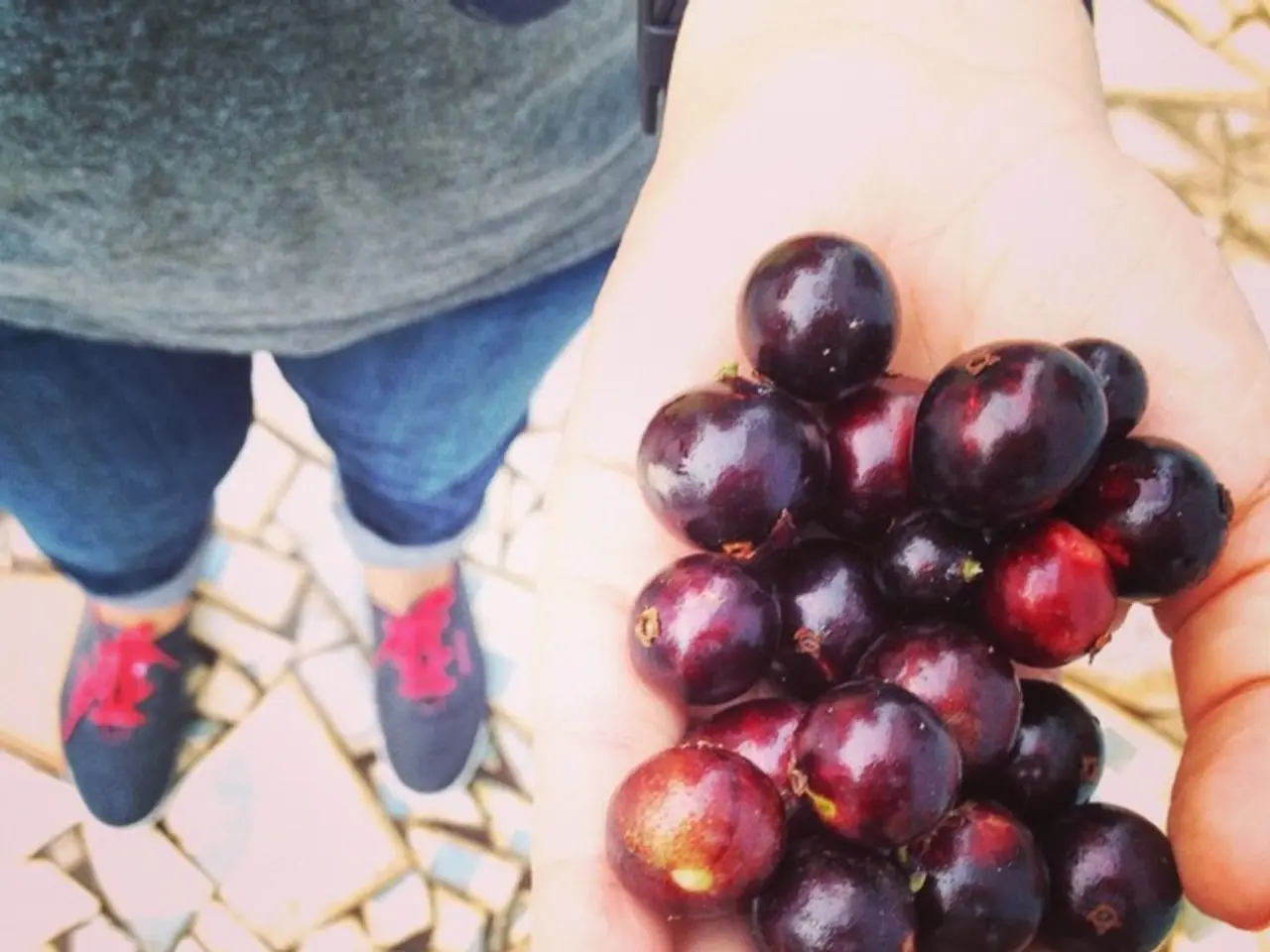Consumption of grapes and raisins is harmful to cats.
In the world of feline nutrition, one food item that cat owners should be wary of is grapes. While these small, juicy fruits are a popular snack for humans, they can pose a significant risk to cats.
Veterinarians often find themselves administering immediate care for cats that have ingested grapes or raisins. This care may include inducing vomiting, administering intravenous fluids, and closely monitoring kidney function. The exact reason behind grape toxicity in cats remains a mystery, with researchers proposing various theories, such as tartaric acid or flavonoids in grapes causing the harm, but no definitive toxic substance has been identified [4][5].
The ingestion of grapes can lead to severe symptoms in cats, including vomiting, diarrhea, lethargy, abdominal pain, and potentially acute kidney failure [1][3][4]. This kidney failure can be fatal, and because the toxic dose is not established and can vary among individual cats, any consumption of grapes or raisins should be treated as an emergency requiring immediate veterinary attention [1].
It is not advisable to attempt treating a cat without professional guidance when it has eaten grapes. Fast action is crucial to prevent complications and to flush out toxins from a cat's system. In such situations, keeping grapes out of a cat's reach is highly recommended, as cats do not naturally crave them.
When it comes to cat treats, it's essential to choose options that align with their dietary requirements. A meat-based diet is crucial for cats to thrive, and treats should reflect this. Options such as freeze-dried chicken, commercial cat treats, or vet-approved snacks are suitable choices.
In conclusion, while the precise biological or chemical mechanism causing grape toxicity in cats remains unexplained, it is clear that grapes can lead to kidney damage. As a result, it's best to avoid giving grapes to cats, even in moderation. Always prioritise their health and safety by keeping potentially harmful foods out of their reach and consulting with a vet when necessary.
Technology can aid pet owners by providing information on safe and unsafe food items for their cats. For instance, apps and websites about pet nutrition can help keep a cat's home-and-garden environment free from grapes, reducing the risk of potential kidney damage in pets.
Besides grapes, it's important to ensure that a cat's lifestyle is well-balanced, encompassing proper nutrition, regular exercise, and mental stimulation. A home-and-garden environment designed to facilitate these needs can contribute to a long, healthy, and happy life for a cat.




